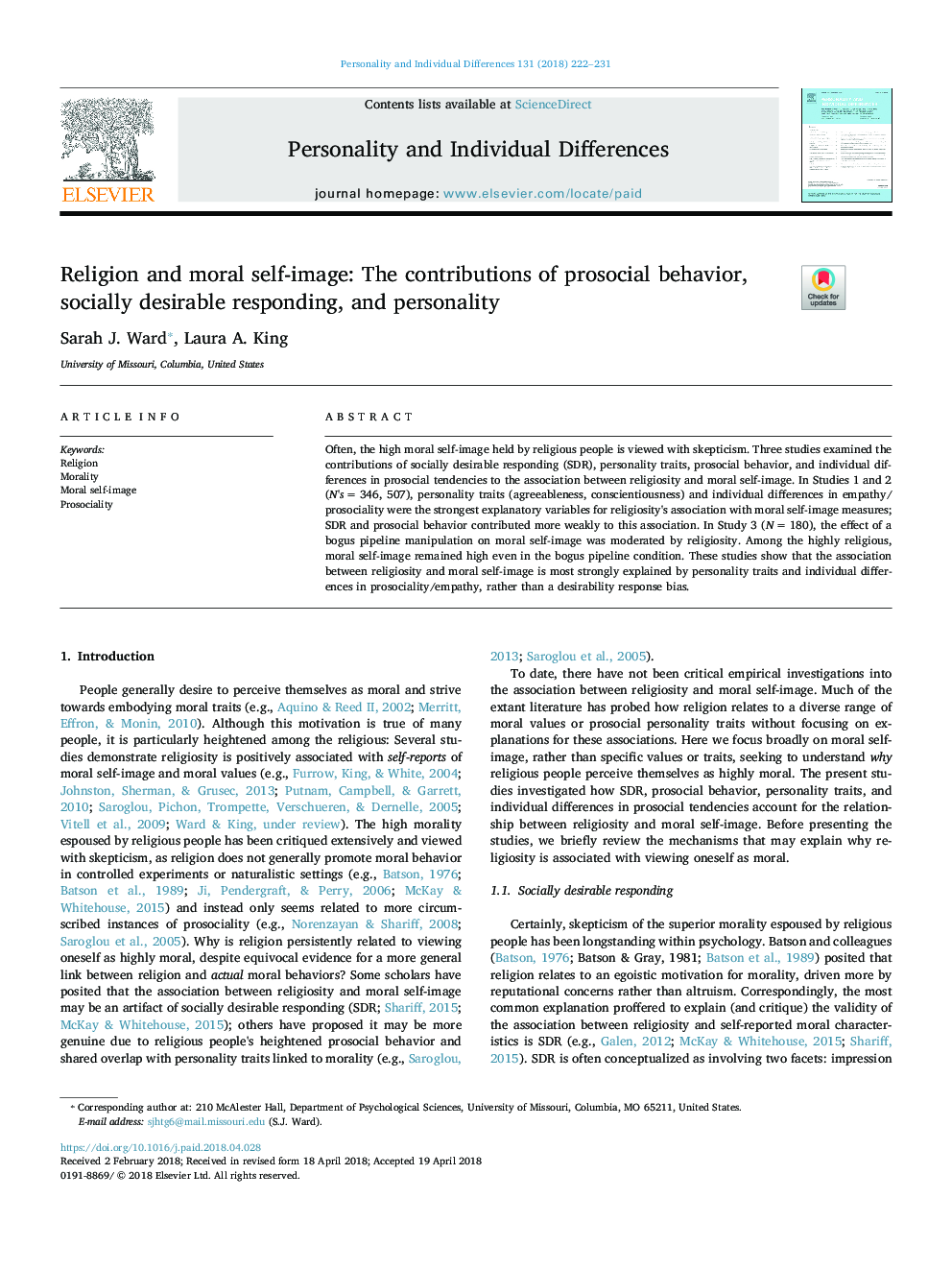| کد مقاله | کد نشریه | سال انتشار | مقاله انگلیسی | نسخه تمام متن |
|---|---|---|---|---|
| 7248597 | 1471987 | 2018 | 10 صفحه PDF | دانلود رایگان |
عنوان انگلیسی مقاله ISI
Religion and moral self-image: The contributions of prosocial behavior, socially desirable responding, and personality
ترجمه فارسی عنوان
دین و خودپنداره اخلاقی: سهم رفتارهای طرفدار اجتماعی، پاسخ اجتماعی مطلوب و شخصیت
دانلود مقاله + سفارش ترجمه
دانلود مقاله ISI انگلیسی
رایگان برای ایرانیان
کلمات کلیدی
دین، اخلاق، تصویر اخلاقی خود، مشروعیت
موضوعات مرتبط
علوم زیستی و بیوفناوری
علم عصب شناسی
علوم اعصاب رفتاری
چکیده انگلیسی
Often, the high moral self-image held by religious people is viewed with skepticism. Three studies examined the contributions of socially desirable responding (SDR), personality traits, prosocial behavior, and individual differences in prosocial tendencies to the association between religiosity and moral self-image. In Studies 1 and 2 (N'sâ¯=â¯346, 507), personality traits (agreeableness, conscientiousness) and individual differences in empathy/prosociality were the strongest explanatory variables for religiosity's association with moral self-image measures; SDR and prosocial behavior contributed more weakly to this association. In Study 3 (Nâ¯=â¯180), the effect of a bogus pipeline manipulation on moral self-image was moderated by religiosity. Among the highly religious, moral self-image remained high even in the bogus pipeline condition. These studies show that the association between religiosity and moral self-image is most strongly explained by personality traits and individual differences in prosociality/empathy, rather than a desirability response bias.
ناشر
Database: Elsevier - ScienceDirect (ساینس دایرکت)
Journal: Personality and Individual Differences - Volume 131, 1 September 2018, Pages 222-231
Journal: Personality and Individual Differences - Volume 131, 1 September 2018, Pages 222-231
نویسندگان
Sarah J. Ward, Laura A. King,
